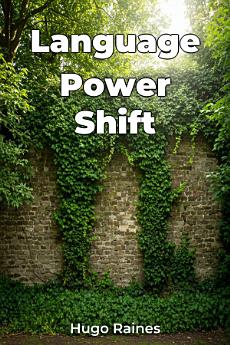Language Power Shift
About this ebook
The book traces the historical trajectory of LGBTQ+ terminology, revealing how terms have transformed from clinical labels to reclaimed identities. It also shows how inclusive language in policy and legislation can empower LGBTQ+ individuals. By integrating perspectives from linguistics, sociology, and political science, the book provides a comprehensive understanding of the forces shaping language use. It progresses from establishing a theoretical framework to analyzing the historical evolution of terminology, examining policy implementation, and exploring inclusive language in education, ultimately offering recommendations for navigating controversies.
This book stands apart through its intersectional approach, recognizing how experiences are shaped by various social categories. Supported by linguistic analysis, policy documents, and original research, including surveys with LGBTQ+ individuals, educators, and policymakers, it offers valuable insights for educators, policymakers, and anyone seeking to understand the power of language in shaping social attitudes.








